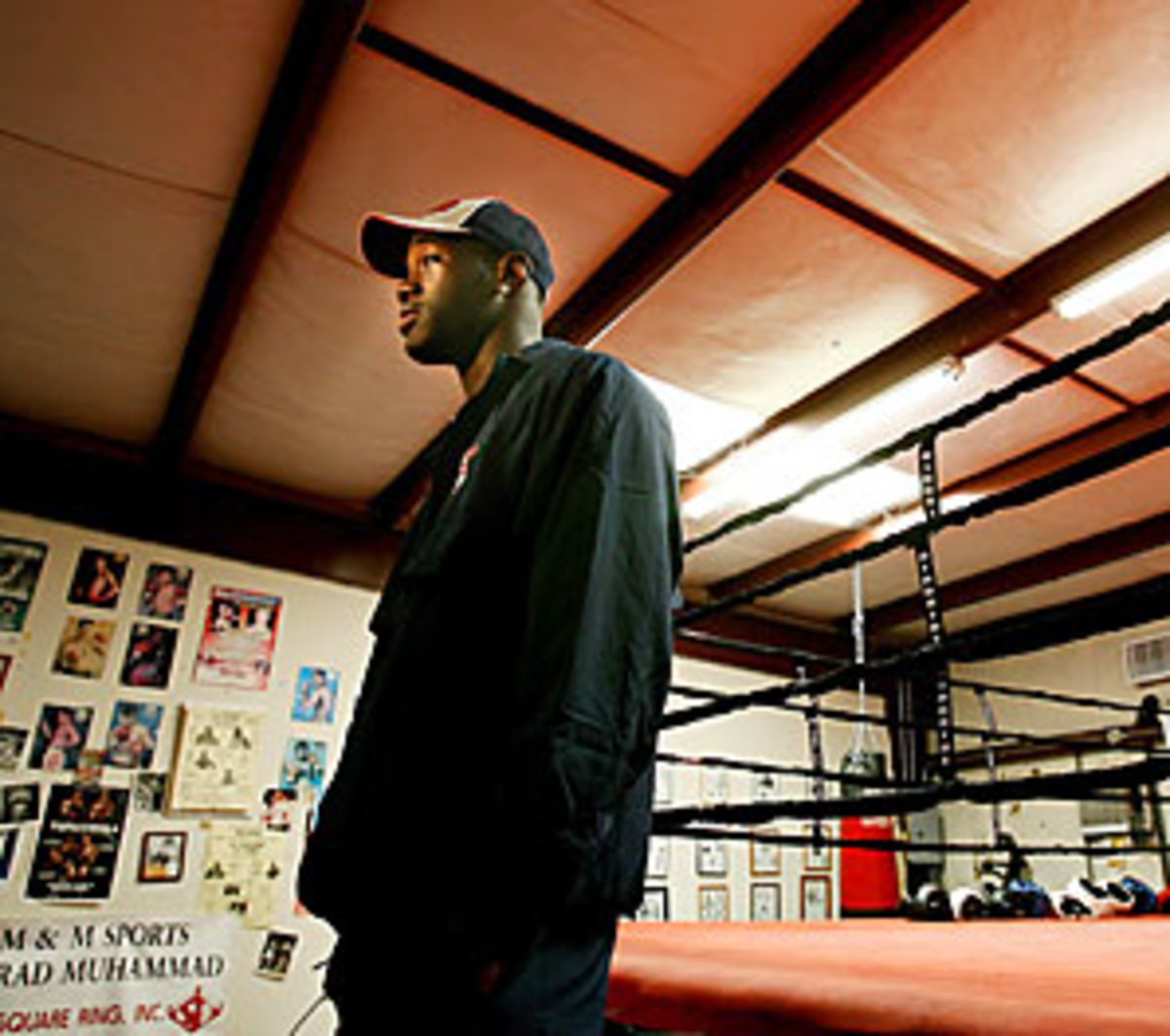
Near tragedy becomes blessing for American boxer Wilder
The left hook from Deontay Wilder connected quickly and violently, its sheer blunt force sending the recipient of the blow, Chinese Olympic heavyweight Nijiati Yushan, toppling like falling redwood face-first to the canvas. As a dazed and disoriented Nushan staggered to his feet, the referee wisely embraced him, calling a halt to the Olympic exhibition match in the second round.
It was the kind of smoothly delivered punch you would expect from a more seasoned heavyweight such as Wladimir Klitschko or Samuel Peter, not from a former Budweiser truck driver who only picked up the sport less than two years ago. No, 22-year-old Olympic hopeful, Wilder, was not forged from the fire of Gleason's gym or molded in the sweltering heat of Kronk gym. Rather, Wilder, a 6-foot-7, 198-pound LeBron James lookalike from Tuscaloosa, Ala., is a former power forward and wide receiver who only decided to lace up the gloves after a near tragedy.
Wilder was just 19 years old the day his life changed forever. A baby-faced freshman at Shelton State, a small community college in Tuscaloosa, Wilder's focus was on trying to accumulate enough credits to enroll at the University of Alabama, where he hoped to play both football and basketball for the Crimson Tide. "I was good, too," said Wilder. "I had game. I know that I could have played for them."
But something happened on Wilder's road to stardom: His girlfriend, Helen, told him she was pregnant with his child. During the first rounds of prenatal check-ups, Wilder found out his baby girl was going to be born with Spina Bifida, a birth defect that involves the incomplete development of the spinal cord. In an excruciating meeting, the doctor outlined all the potential problems the baby could be born with -- from paralysis to learning disabilities. At one point, terminating the pregnancy was floated as a possibility. "When he told us that, our hearts dropped at the same time," said Wilder. "Doctors can be brutal. I was like, 'Man I want all the information, but not all at once like this.'
School was out. "I found out pretty quick I couldn't keep care of my family and go to school," said Wilder. He finished his first year but never played a minute for the basketball team. Instead, Wilder took on two jobs, unloading trucks at Red Lobster in the mornings and working 12-hour shifts at a Mercedes plant in the afternoons. "I was working on a few hours of sleep a night," said Wilder. "I would get up as early as 8 some mornings, work until 2 then go to the Mercedes plant at 4 and work through the night."
Despite the long hours, Wilder would never complain. "I couldn't turn my back on my child," said Wilder. "I don't understand people who do that. People who do that always try to get back in their kids lives when they get older, but you can't do that. You have to be there from the beginning."
Wilder finally caught a break in 2006, when he met a supervisor at Budweiser while playing basketball in a YMCA league. Wilder was able to land a job at the beer company, which allowed him to quit his other two jobs, loading and unloading trucks. After a few months, he was promoted to driver.
"Man, they sent me everywhere," said Wilder. "I was going all over the state in that truck. And I never knew where I was going. I was always on the radio or looking at maps trying to get someone to help me figure out how to get to my stop."
With a few extra hours on his hands, Wilder's mind began to focus back on sports. "I always wanted to make a living playing sports," he said. With age and a lack of a scholarship offers working against him, basketball and football were out. But when a former classmate suggested he try his hand at boxing, Wilder -- no stranger to a fight -- jumped at the chance. "I used my hands a lot growing up," he said. "I had a reputation for that. I didn't look for trouble, but trouble found me. And I wound up in a lot of fights."
Wilder found his way to the Skyy Boxing Club in nearby Northport, where he learned the intricacies of the Sweet Science. It didn't take long. In his first fight, Wilder dropped his opponent with three punches. Not too long after, Wilder was a Golden Gloves champion. "Boxing, it grows on you," he said. "You know you're a boxer when you're fighting in your sleep or you look in the mirror and you're sparring with yourself."
These days Wilder spends most of his time in Colorado Springs, where he is training to become the first American heavyweight in 20 years to win a gold medal. He's won 29 of his 32 fights as an amateur, most by knockout. After several surgeries, his daughter, Naieya, is healthy -- "she's walking and doing everything a normal girl her age would do" -- and Wilder is hoping to earn enough money for the both of them when he turns professional after the Olympics. He is living a dream, albeit not the one he initially thought he would. "None of this would have happened without my daughter," said Wilder. "She's a blessing. She's my blessing."





